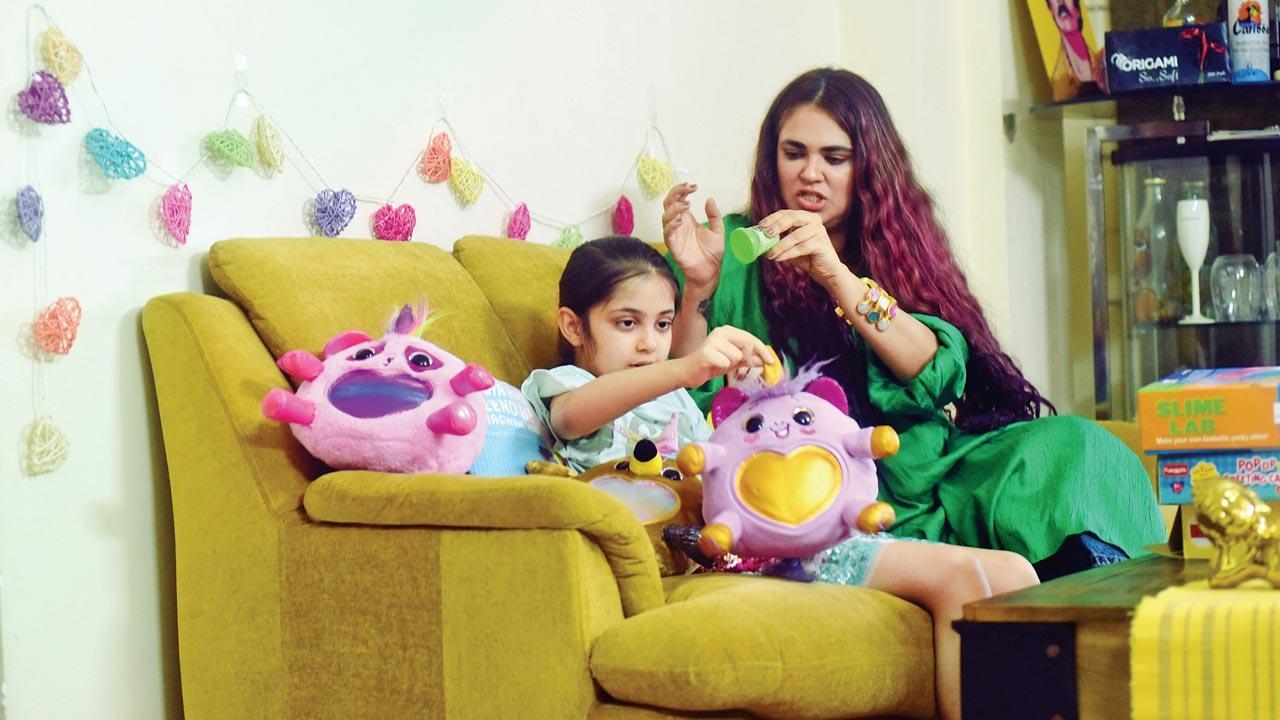Home / Sunday-mid-day / / Article /
Will we want to leave home?
Updated On: 13 June, 2021 09:12 AM IST | Mumbai | Aastha Atray Banan
If habits are forged in three weeks, over a year of being homebound and inward-focused means that privileged Mumbaikars could be heading out only for experiences and not necessities

Jasleen Kaur Gupta orders toys for her four-year-old daughter online as well. Pic/Atul Kamble
My dining table needs to be replaced, and I am looking forward to choosing a new one online,” says Jasleen Kaur Gupta. A single mother to four-year-old Karam, Gupta’s focus has shifted from “necessities” to “experiences”. She no longer steps out to shop. Regular orders of vegetables, fruits, clothes, and even toys for her daughter are placed online. “We used to go to Hamley’s, but Karam would get confused, lost in a sea of options. Now, we browse, and then add to cart. Then we let it be for a day or two, and come back to the list for a review. It’s a regular activity for us now.” The time she has ended up saving has made this a more than attractive option.
“I feel that it has given me an understanding of what I should be really spending my time on. I have become more aware of that. We keep telling friends, let’s meet for coffee, but are too busy with chores to catch up. I think with the time saved, I will now be able to enjoy the company of friends, over coffee and wine,” says Gupta, 38, who doesn’t imagine herself making the once regular trip to Santa Cruz’s Foodhall. The exotic vegetables order from there now comes home via Dunzo, a delivery app. Gupta is describing a lifestyle change spurred by the pandemic and resultant lockdowns over the last one year, that so many are experiencing now.
Nidhi Gupta runs Shades of Spring, which delivers flowers to you on a weekly or monthly subscription basis



